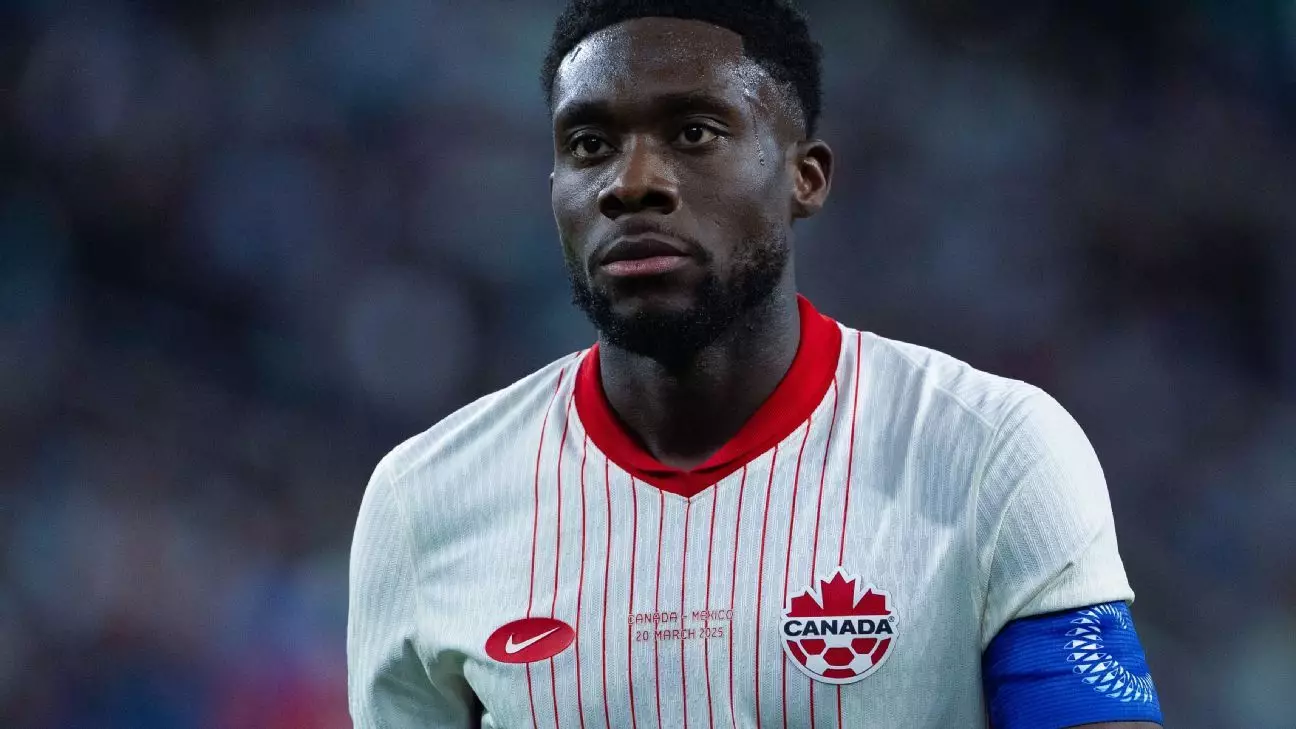Alphonso Davies, a remarkable talent in the world of soccer, recently faced a serious setback during the Concacaf Nations League finals. The star left-back for Bayern Munich suffered a tear in his anterior cruciate ligament and additional knee damage while helping Canada secure a 2-1 victory over the United States. This incident not only jeopardized Davies’ playing career for the rest of the season but ignited tensions between Canada Soccer and his club, Bayern Munich, regarding the level of care provided to their injured player. As physical injuries often do, this unfortunate event has spiraled into a wider discussion about athlete health and organizational responsibility.
Canada Soccer’s Defense: Was It Adequate?
In the wake of Davies’ injury, Bayern Munich expressed outrage over Canada Soccer’s handling of the situation. The club’s executives questioned whether proper medical protocols had been followed, particularly criticizing the decision to allow a seriously injured player to embark on a 12-hour flight without a thorough medical assessment. Their response positions them as both protective of their investment in a critical player and as advocates for athlete welfare. In contrast, Canada Soccer has staunchly defended its medical staff’s actions, claiming that all protocols were adhered to and that ongoing communication was established with Bayern throughout the tournament. This stark dichotomy of perspectives raises the question: how transparent are the athlete care practices at the national level?
While it’s laudable that Canada Soccer attempts to clear the air, their reassurances seem insufficient when faced with allegations from one of the world’s leading football clubs. The image of Davies flying injured directly contradicts the ideal of providing comprehensive care to elite athletes. Although Canada Soccer claims there was no neglect, the blurred lines surrounding their medical decisions deserve closer scrutiny. In a sport where every minute and every decision counts, can we truly afford to have ambiguities regarding the health of players?
A Broader Discussion on Player Welfare
The incident involving Davies isn’t an isolated case; it serves to emphasize a pressing issue in professional sports: the level of care afforded to players operating under national teams versus their club teams. The emotional and physical stakes attached to high-level competition complicate the balance between institutional obligations and the welfare of individual athletes. When clubs and national federations clash over medical assessments and athlete care, it’s usually the player who bears the brunt of the fallout.
The assertion that sending an injured player on a long flight without a comprehensive medical evaluation is “grossly negligent” is grave. It signals to other athletes and industry stakeholders that commitment to care must be non-negotiable. Employers should prioritize the health concerns of their players over competitive aspirations. In this case, both Canada Soccer and Bayern Munich need to reflect critically on their processes and policies surrounding athlete care. The duty of care should transcend the field, ensuring athletes have the necessary protection before, during, and after they don their jerseys.
Communications Breakdown: Learning from the Incident
The dialogue between Davies’ agent and Canada Soccer illustrates the potential for miscommunication in athlete management. The agent’s initial criticisms transformed into a collaborative conversation with Canada Soccer’s head coach, reflecting the need for ongoing dialogues aimed at player welfare. Positive, proactive exchanges could potentially prevent misunderstandings that may escalate into legal disputes or public relations crises.
This incident highlights the importance of continuous communication among all stakeholders involved in athlete care—from medical staff to coaches, agents, and even the players themselves. Building a collaborative framework can pave the way for smoother operations, ultimately benefiting the athlete. Also, with global competition as formidable as ever, investing in a robust support system for players is not just an ethical responsibility but a pathway to preserving the integrity of the sport.
Moving Forward: The Future of Athlete Health Care
The unfolding drama surrounding Alphonso Davies etches a critical lesson for sports organizations everywhere: understanding and prioritizing the mental and physical health of athletes should be paramount. The discourse on injuries could foster an era where greater emphasis is placed on comprehensive care and welfare initiatives. In today’s world, transparency in athlete health management must be the gold standard—after all, our sports heroes deserve more than just recognition; they deserve uncompromised support. As we watch this issue evolve, one thing is clear—a paradigm shift in athlete care philosophy is not just necessary; it’s imperative.

